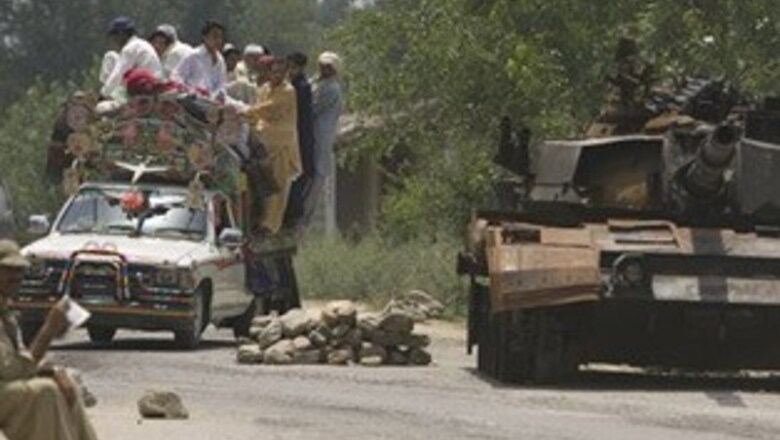
views
Washington: Pakistan's military has offered to play a broker between the US and the Taliban, but in return it wants concessions from Washington over Islamabad's concerns with India, according to CNN.
Pakistan military spokesman Maj. Gen. Athar Abbas said in an interview with the news channel that Pakistan's military was not only in contact with Afghan Taliban leader Mullah Mohammed Omar but that it can bring him and other commanders to the negotiating table with the US.
The acknowledgment of on-going communication with Taliban forces using sanctuary in Pakistan to launch military strikes against US troops in neighbouring Afghanistan is part of a new diplomatic overture to help the Obama administration find an end to the long-running conflict, CNN said.
But Abbas told the channel that in return for any role as a broker between the US and the Taliban, Pakistan wants concessions from Washington over Islamabad's concerns with longtime rival India.
CNN said senior US officials had told it that the Obama administration is willing both to talk to top Taliban leaders and to raise some of Pakistan's concerns with India.
With NATO's Afghan force commanders conceding the military fight against the Taliban in key areas of Afghanistan is at a "stalemate" and that a recent influx of American combat troops is hoped to break the deadlock, the consensus among military and diplomatic figures in the region is that the US cannot win the war in Afghanistan militarily.
Most believe a resolution to the conflict will ultimately be a political, and economic, one rather than a military victory that will necessitate negotiations with the Taliban, the channel said.
Such a resolution will have to be struck with the involvement of Pakistan, India, Iran and possibly Saudi Arabia, as well as NATO and the US, CNN said.
And with the Pakistan military, with its intelligence service, the Inter-Services Intelligence (ISI) directorate, now going public with its offer to act as broker to help initiate talks, this could be the first opportunity for a breakthrough in ending the Afghan war that began with the US invasion in 2001, it said.
Abbas told CNN after its "very intense relationship" with militants during the fighters' alliance with the US during the Soviet war in Afghanistan, the Pakistan military is now still in contact with Taliban commanders such as Mullah Omar, Jalalladin Haqqani, Mullah Nazir and Gulbuddin Hekmatyar, leader of the militant Hizb-e-Islami group.
"That's right, the ISI was in the forefront of the whole struggle against the Soviets. Now, maintaining the contacts with the organisations (like Mullah Omar's Taliban and Gulbuddin Hekmatyar) doesn't mean that that state policy is (to be) providing them physical support or the funding or training," Abbas said.
After the 9/11 attacks Pakistani policy to support the groups did a "U-turn", he said.




















Comments
0 comment